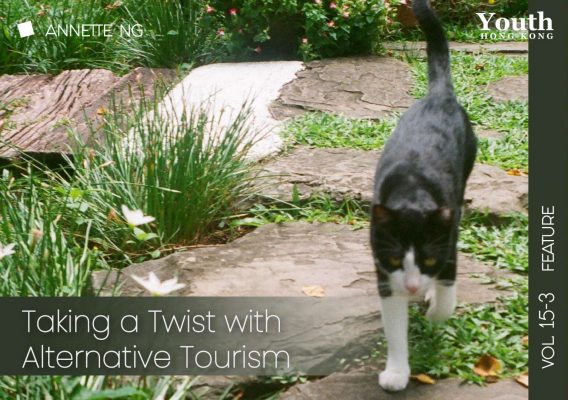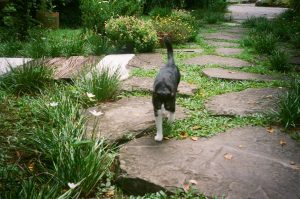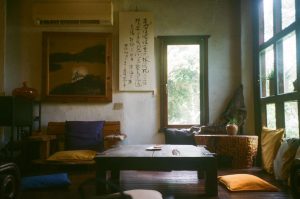//vol.15-3 Feature
Taking a Twist with Alternative Tourism
by Annette Ng
Alternative tourism is a type of tourism emphasising on experiencing local cultures, families, and communities over mainstream tourist attractions. Join Annette for a conversation with nature through her film camera.
Taiwan has long been a favourite travel destination for Hong Kong residents, with its bustling night markets, iconic Taipei 101, soothing hot springs, and breathtaking national parks. These tourist magnets certainly hold their appeal, but for this journey, I wanted to wander off the beaten path and go on alternative tourism. My focus was set on immersing myself in the culture and environment, a refreshing change of pace from the hectic life back in Hong Kong.
Stepping out of my comfort zone, armed with my vintage film camera and a spirit of adventure, I headed to a rural area in a small town called Zhuolan. Here, nestled among the hills, I found solace in a charming wooden cabin in the heart of the countryside.
The accommodation, consisting of four independent little cabins and a dining hall, was operated by a sweet couple. The woman was a nurse and a masterchef who cooked meals for guests. Her husband, who studied art before, designed the whole place from scratch, including the plantation and wooden houses. There were paintings contributed by his friends at corners, which perfectly blended with the wooden interior and created a meditative atmosphere.
When I arrived, I received a warm welcome not only from the hosts but also from their handsome cat. They led me to the dining hall and served afternoon tea. Instead of the usual check in routine with reception staff looking at the computer screen, they brought over a rustic notebook after teatime for me to register. This human touch and back-to-basics mode was not what I had expected. While technology serves us well in countless ways, the warmth of human care and physical media have their irreplaceable positions.
There is a Chinese saying “eat food that is in season.” Rested in the heart of the hill, this couple had easy access to the freshest produce from nearby farms, allowing them to craft dishes with fresh materials.
The owner’s wife, whose Japanese nickname is “flower,” loves to incorporate flowers in the presentation of dishes. She would pluck flowers from their backyard and incorporate them into her dishes. As dinner was served, each meticulously crafted dish bore the chef’s love and showcased advanced culinary techniques.
In traditional Chinese wisdom, human and nature coexist in harmonious unity. I appreciate how ingredients in the backyard were transformed into delicate dishes on the dining table. It was a reminder of the importance of preserving nature and cherishing food.
In this town, a unique twist was given to traditional dishes, such as the addition of cheese to Hakka meatballs. Additionally, there were everyday 「homey」 dishes enjoyed by Taiwanese Hakka families. Engaging with the local community and tasting their dishes made from fresh local ingredients offered a truly immersive experience.
The host’s feline friend followed me back to my cabin, seeming ready to spend the night with me. After being evicted from my house, the self-invited little guest stayed outside overnight and greeted me once I stepped out of the cabin door the next morning. This close connection with nature was certainly different from city life I normally experience.
While a typical travel itinerary often includes a whirlwind of tourist attractions and renowned dining establishments, it was the authenticity and warmth of the people I met, the deep cultural immersion, and the unspoiled natural beauty of this place that left an indelible mark on me.
As I basked in the fresh air and the symphony of nature’s sounds, I couldn’t help but ask myself, isn’t this the most rewarding aspect of travel? I firmly believe that what is often labelled as alternative tourism should be embraced as the mainstream – an organic and genuine cultural exchange.
After returning to Hong Kong, I developed my film that had captured the peaceful moments during my unconventional Taiwan journey. In a world dominated by smartphones and apps that mimic the effects of film photography, some may wonder about the enduring appeal of traditional film cameras. For me, it was about savouring the time spent in the tranquil woods, cherry-picking charming scenes, and contemplating each shot before pressing the shutter button. The delayed gratification of seeing the photos after the trip is a record of the magical moment I had experienced.
As my alternative journey with my film camera comes to an end, I wonder what is your unique way of exploring new places? ■





